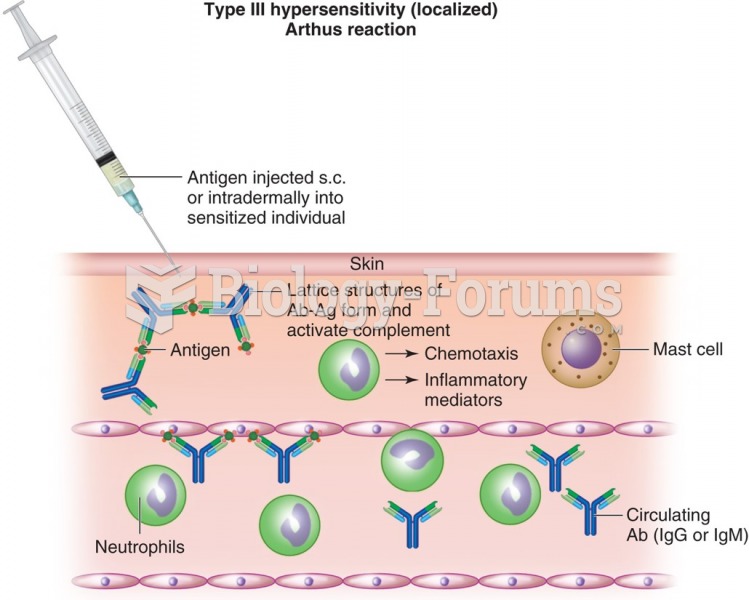|
|
|
The calories found in one piece of cherry cheesecake could light a 60-watt light bulb for 1.5 hours.
The average human gut is home to perhaps 500 to 1,000 different species of bacteria.
Approximately 25% of all reported medication errors result from some kind of name confusion.
Fatal fungal infections may be able to resist newer antifungal drugs. Globally, fungal infections are often fatal due to the lack of access to multiple antifungals, which may be required to be utilized in combination. Single antifungals may not be enough to stop a fungal infection from causing the death of a patient.
The use of salicylates dates back 2,500 years to Hippocrates’s recommendation of willow bark (from which a salicylate is derived) as an aid to the pains of childbirth. However, overdosage of salicylates can harm body fluids, electrolytes, the CNS, the GI tract, the ears, the lungs, the blood, the liver, and the kidneys and cause coma or death.
 Comparison of breast cancer and fibrocystic disease. (A) Breast with a malignant tumor growing in th
Comparison of breast cancer and fibrocystic disease. (A) Breast with a malignant tumor growing in th
 The recent mass upheavals in Tunisia, Egypt, Libya, Yemen, and Syria gave political scientists a cha
The recent mass upheavals in Tunisia, Egypt, Libya, Yemen, and Syria gave political scientists a cha




